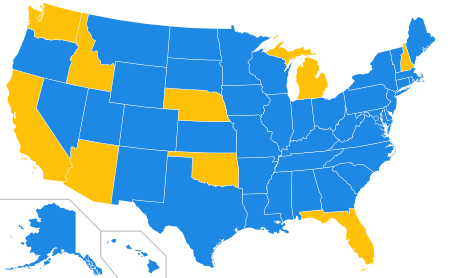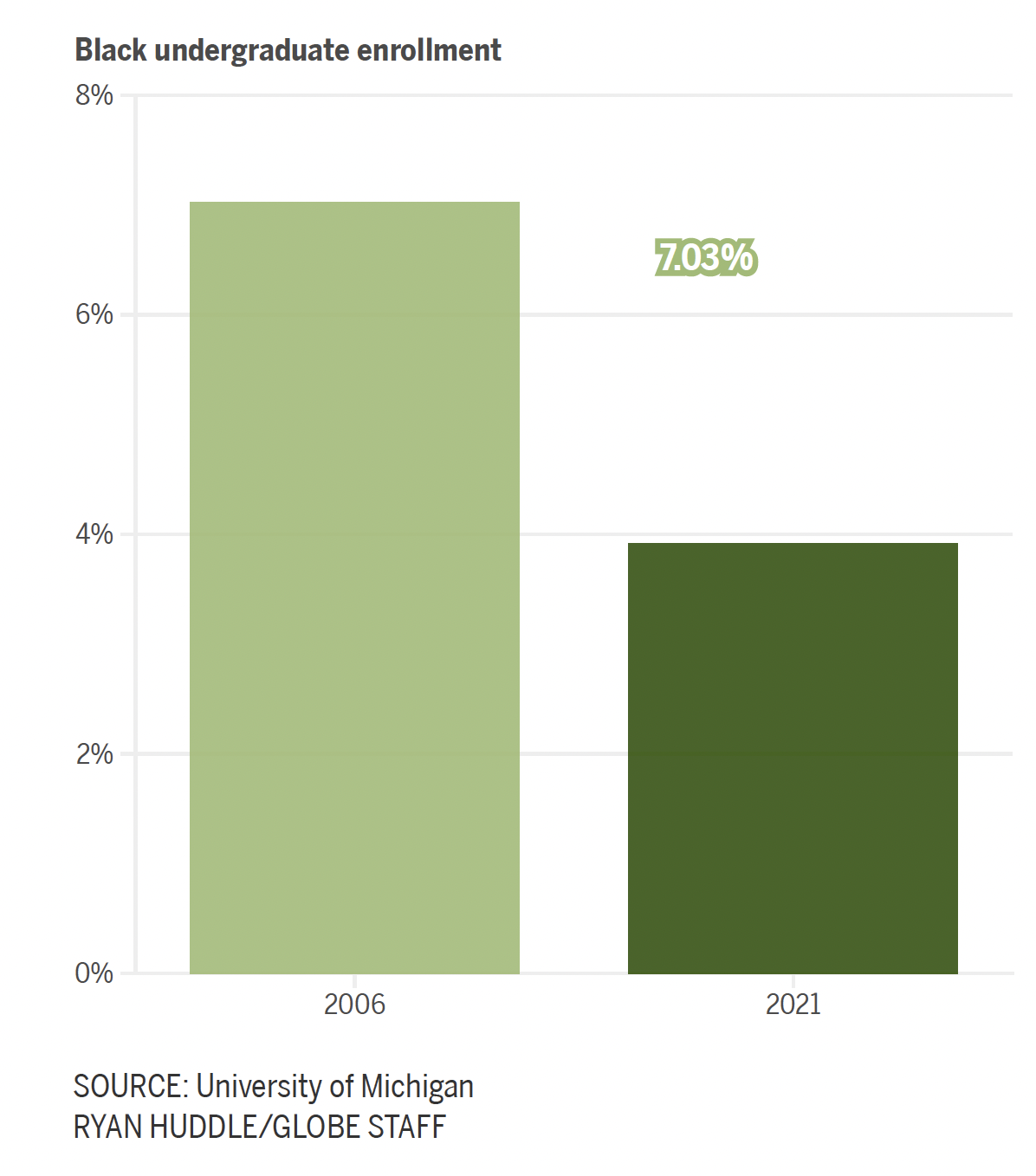Ramifications

State bans affirmative action and other forms of selective employment
As we await SFFA v. UNC and SFFA v. Harvard decisions, we look to the states as labortories of Democracy to understand what striking down affirmative action would actually look like. Many are unaware of the fact that nine states have already banned affirmative action. In 1996, California voters approved the nation's first ballot initiative banning consideration of race and gender public educatioon, hiring, and contracting known as Proposition 209.
California and Michigan ended affirmative action years ago. Since then, top colleges and universities in both states have tried a range of race neutral stragies to recruit Black, Hispanic, Native American, and other minority students. The results have been sobering. At UCLA, UC Berkeley, and the University of Michigan, enrollment of underrepresented students of color sharply declined after the bans, and the number still lags. Once again, we can see how race-neutral policies are not race neutral at all - they hurt people of color. There are measures that colleges, but administrators and experts have found that there is no subsitute for privileging race as an admissions criterion. Some actions such as ending SAT requirements, providing scholarships to low-income students, and reaching out to high schools with low-income or minority students have only marginally boosted diversity.
At Berkeley, the number of Black and Latino student in the firt-year class was cut in half immediate after the ban. UCLA saw simiiliar results. At the University of Michigan, enrollment of Black students has fallen 44 percent and the number of Native American students has dropped 90 percent since the ban was passed in 2006.

The afrtermath of affirmative action ban for University of Michigan
The ramifications do not end here. In California, about 15 years after Propositioon 209, there were about 1,000 fewer high-earning Black and Hispanic professional in the state, said Yale researcher Zachary Bleemer (Burns 2023).
Polling
When Gallup asked Americans "Do you generally favor or oppose affirmative action programs for racial minorities?" Without a definition or explanation, 61% were in favor and 30% were opposed as of 2018. This is an increase from 47-50% in the early 2000s. However, when Pew asked in 2019, "When it comes to decisions about hiring and promotions, do you think companies and organizations should take a person's race and ethnicity into account, in addition to their qualifications, in order to increase diversity in the workplace (or) should only take a person's qualifications into account, even if it results in less diversity in the workplace?" 74% chose the latter. NORC General Social Survey asked a similar question in 2018 and found The results show that 72% of U.S. adults oppose giving preference to Black Americans in hiring and promotion, including 43% who say they oppose strongly.
This evidence shows that Americans clearly favor the idea of remedying past injustice towards African Americans and reducing inequalities of outcomes. But when it comes to policies that explicitly take race into account in making hiring and promotion decisions in order to remedy past discrimination and overcome implicit bias, the public demurs.
What do you think? Vote in the poll below and vote in your local, state, and elections!